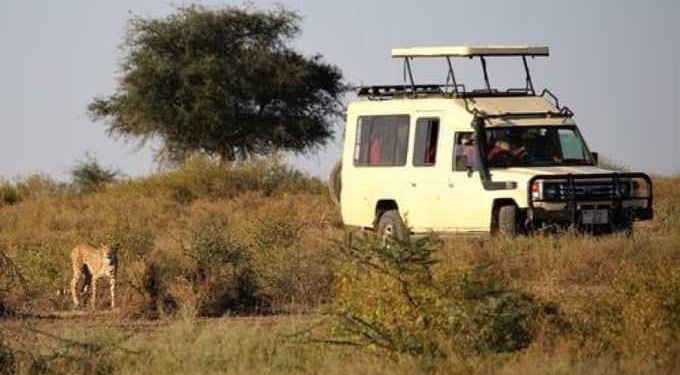Congratulations for choosing Kenya as your favorite travel destination in East Africa. When it comes to exquisite nature experiences, Kenya has an abundance of them. From exhilarating game drives across the Masai Mara National Park to hiking tours in the Aberdare Ranges, there’s more than one way to experience Kenya’s grandeur. The country is also famous for its charming beaches and incredibly friendly people.
But as you may already know, the success of your trips across Kenya depends on how well prepared you are. As is the case with most travel destinations, Kenya has its fair share of challenges for tourists to contend with.
Even if you’re a seasoned traveler, you’re never entirely immune from unpleasant surprises, which underscores the importance of working with a trusted travel agency such as AjKenyasafaris.com. Their guides were born and raised in East Africa, and they will safely and smoothly guide you across Kenya.
In this post, we shall highlight some of the top five things you should note before traveling to Kenya.
1. There Are Endless Adventure Opportunities
As we’ve already mentioned, Kenya is the preeminent safari destination in East Africa. If you are into wildlife sightseeing tours, there are plenty of national parks and game reserves that you can explore. Examples include Masai Mara National Reserve, Tsavo East and Tsavo West National Parks, The Amboseli and more. There’s also the Nairobi National Park, which is the only game park in the world located within a city.
But what if you don’t fancy the idea of the long and meandering bush tours?
You don’t need to fret because apart from wildlife safaris, Kenya also teems with beautiful beaches, such as Diani, Nyali, and Shanzu. Some of the major activities around these beaches include snorkeling, jet-skiing, boat rides, scuba diving, camel riding, and hot air balloon rides.
If you are a hiker, you’ll do fine with a trip to Mount Kenya or the Hell’s Gate. There are numerous Nairobi based travel agencies that offer all-inclusive holiday packages to any Kenyan destination of your choice.
And when the sun goes down, Kenya’s cities burst into vibrant nightlife scenes, ensuring that the fun doesn’t stop at dusk.
The drift here is that whether you are planning a family safari trip to Kenya, a group tour, or a sole trip to Kenya, you won't be short of fun and exciting things to do and see.

2. You Need Documentation
To enjoy any of the adventure opportunities we’ve highlighted above, you’ll need to possess all the relevant travel documents.
A passport and visa are the two most important documents you should prepare if you’re planning a trip to Kenya. Your passport must have a minimum of two blank pages, as well as a six months’ validity. Visa requirements differ depending on your country of origin. Kenya extends visa-exempt privileges to certain countries, so always check beforehand to ensure that your country is covered by Kenya’s visa-exempt policy.
Other documentation you’ll need include travel insurance, proof of vaccination (where it applies), your travel itinerary, and an International Driver’s License (optional).
To learn more about all the documentation that’s required of you, your best bet is to work with a reliable African safari tour agency like MasaiMarasafari.in. And once you have all the required documents, determine which ones to leave in your hotel room and the ones to carry around. It’s generally prudent to carry your passport or visa for identification purposes, which will require that you laminate them and only walk with a copy.
3. Compulsory Vaccination
You’ll be required to possess proof of vaccination against certain diseases before entering Kenya. The most popular condition is yellow fever, in which case, you’ll be asked to produce your Certificate of Inoculation against Yellow Fever.
In addition, you should consider vaccinating against tetanus, polio, and hepatitis. Needless to mention, remember to take antimalarial prophylactics around two weeks before your arrival. The good news is that vaccines last for years, which saves you the hassles of taking them each time you need to travel to Kenya.
Besides vaccinations, you should also carry your prescription medication. Examples include malaria tablets, antihistamine tablets, anti-nausea tablets, as well as cough and earache drops. And as a preventive measure, pack enough insect repellents.
Most importantly, remember that the rules on vaccination change from time to time. For instance, if there’s an outbreak of a viral infection in your country, you may need to provide proof of vaccination against that disease. The last thing you want is to be quarantined at an airport for hours waiting for clearance.
4. Pack the Right Clothing
The equator goes through Kenya, nearly cutting the country into equal halves. Therefore, the climate of Kenya is generally equatorial, which means there are no real winters or real summers.
When packing your clothes, give more consideration to the color, waterproofness, and protection from sunlight. You’ll likely spend a great portion of your time visiting wildlife and nature parks. And while Kenya is a haven for wildlife, sighting the animals in their natural habitats isn’t a walk in the park, especially if your dress code drives them further into the bushes.
Always insist on earth-toned clothing, as these help to hide the dirt from Kenya’s dusty plains while also offering perfect camouflage. Bright colored clothes will not only cost you more in laundry charges, but they’re also known to scare away animals, especially the naturally-elusive ones like the leopards.
Also, generally avoid visiting the Kenyan plains during wet conditions due to poor maneuverability. If you must, ensure you have waterproof jackets and boots. And if your itinerary includes beach excursions, don’t forget your sunglasses, suntan lotion, and a hat.

5. Your Safety Starts With You
This may sound cliché, but when traveling around Kenya, your safety does begin with you. Again, that underscores the significance of working with a professional tour operator who not only provides amazing Easter offers in Kenya, but also one that understands the most dangerous areas in the country to avoid.
Most Kenyan cities are safe if you’re driving in a car. But the situation is a bit different when you’re walking along the city streets and open-air markets. The convention is not to make it too obvious that you are a tourist. When asking for directions, act like an expat who has been in the country long enough. Learn a few Swahili words like Jambo, Sasa, Habari Yako, etc. Proving that you can speak Swahili may make a potential mugger have a second thought.
Also, avoid asking for directions from anyone. Instead, insist on traffic police officers or security guards in uniform.
Other tips you can implement to stay safe in Kenya include;
- Walking with loose change
- Wearing modest clothing and avoiding flashy jewelry
- Shunning heavy luggage or cameras around major cities
And when visiting open-air markets, shopping malls, disco clubs, and most entertainment joints, always have your guide accompany you.

Kenya is one of the most amazing countries in the world. Its matchless beauty and warm climate always have tourists planning for repeat visits. Implementing the suggestions we’ve highlighted here will ensure you have a travel experience to cherish forever.








![Charles Eisenstein: The Illusion of Separation [2-min video]](https://consciouslifenews.com/wp-content/uploads/2024/02/the-illusion-of-separation-350x250.jpg)




